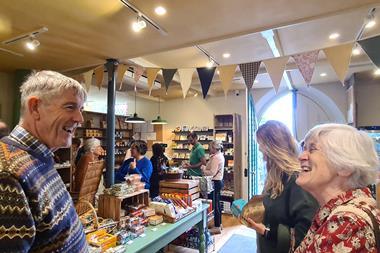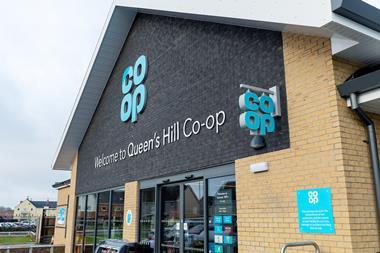‘UK stores are going to have to start innovating’: The Co-op’s Matt Hood

Managing director of food at the Co-op Matt Hood explains how the business is planning to succeed in the competitive UK retail sector
ALREADY HAVE A REGISTERED USER ACCOUNT? PLEASE LOG IN HERE
To read the full story join the ConvenienceStore.co.uk community today!
Registration is quick and easy and provides access to:
- Unlimited ConvenienceStore.co.uk articles
- Our great range of newsletters
- Content you’ve saved for later via the ‘my library’ feature
And much more…































